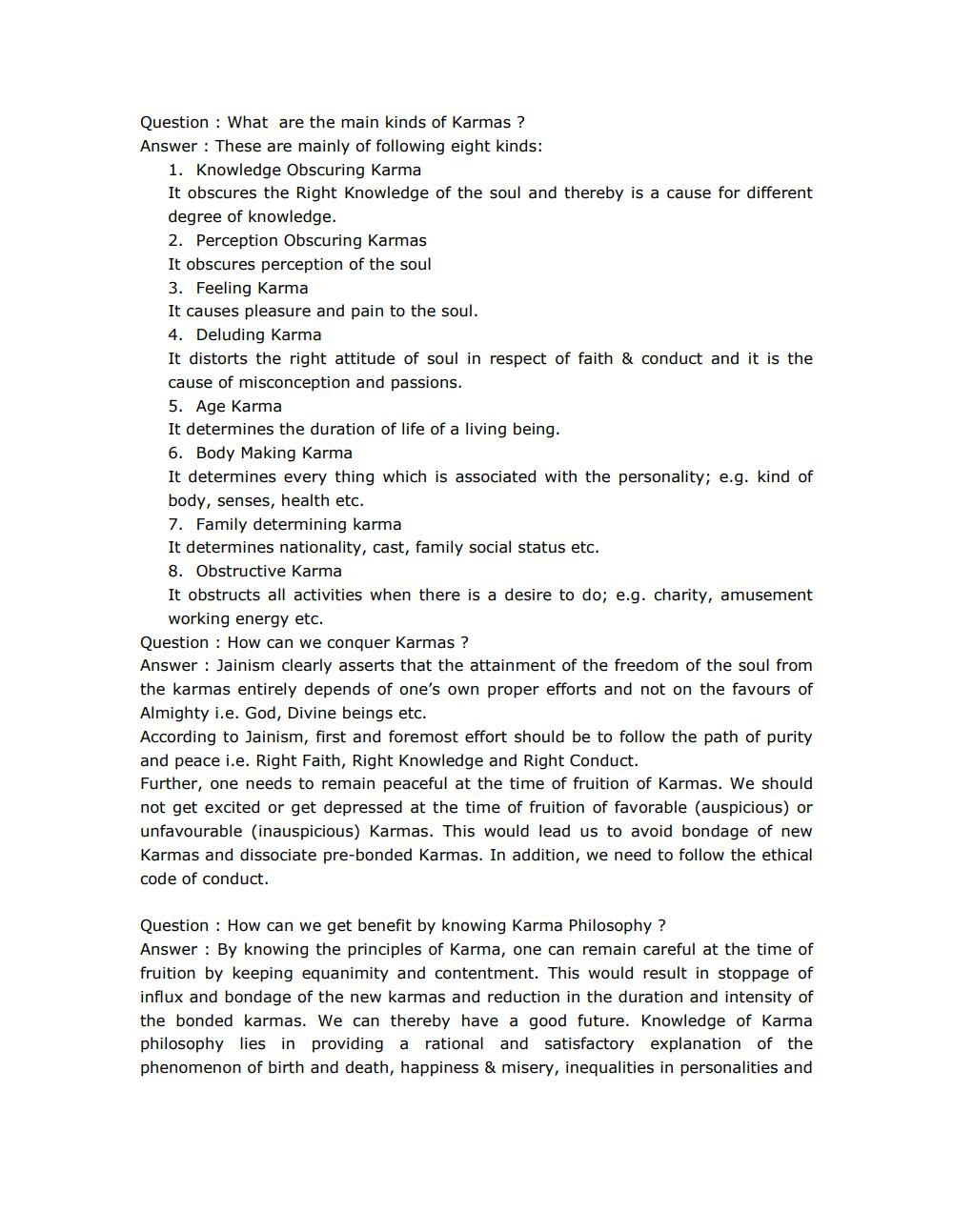________________
Question: What are the main kinds of Karmas? Answer: These are mainly of following eight kinds:
1. Knowledge Obscuring Karma It obscures the Right Knowledge of the soul and thereby is a cause for different degree of knowledge. 2. Perception Obscuring Karmas It obscures perception of the soul 3. Feeling Karma It causes pleasure and pain to the soul. 4. Deluding Karma It distorts the right attitude of soul in respect of faith & conduct and it is the cause of misconception and passions. 5. Age Karma It determines the duration of life of a living being. 6. Body Making Karma It determines every thing which is associated with the personality; e.g. kind of body, senses, health etc. 7. Family determining karma It determines nationality, cast, family social status etc. 8. Obstructive Karma It obstructs all activities when there is a desire to do; e.g. charity, amusement
working energy etc. Question : How can we conquer Karmas ? Answer: Jainism clearly asserts that the attainment of the freedom of the soul from the karmas entirely depends of one's own proper efforts and not on the favours of Almighty i.e. God, Divine beings etc. According to Jainism, first and foremost effort should be to follow the path of purity and peace i.e. Right Faith, Right Knowledge and Right Conduct. Further, one needs to remain peaceful at the time of fruition of Karmas. We should not get excited or get depressed at the time of fruition of favorable (auspicious) or unfavourable (inauspicious) Karmas. This would lead us to avoid bondage of new Karmas and dissociate pre-bonded Karmas. In addition, we need to follow the ethical code of conduct.
Question : How can we get benefit by knowing Karma Philosophy ? Answer : By knowing the principles of Karma, one can remain careful at the time of fruition by keeping equanimity and contentment. This would result in stoppage of influx and bondage of the new karmas and reduction in the duration and intensity of the bonded karmas. We can thereby have a good future. Knowledge of Karma philosophy lies in providing a rational and satisfactory explanation of the phenomenon of birth and death, happiness & misery, inequalities in personalities and




